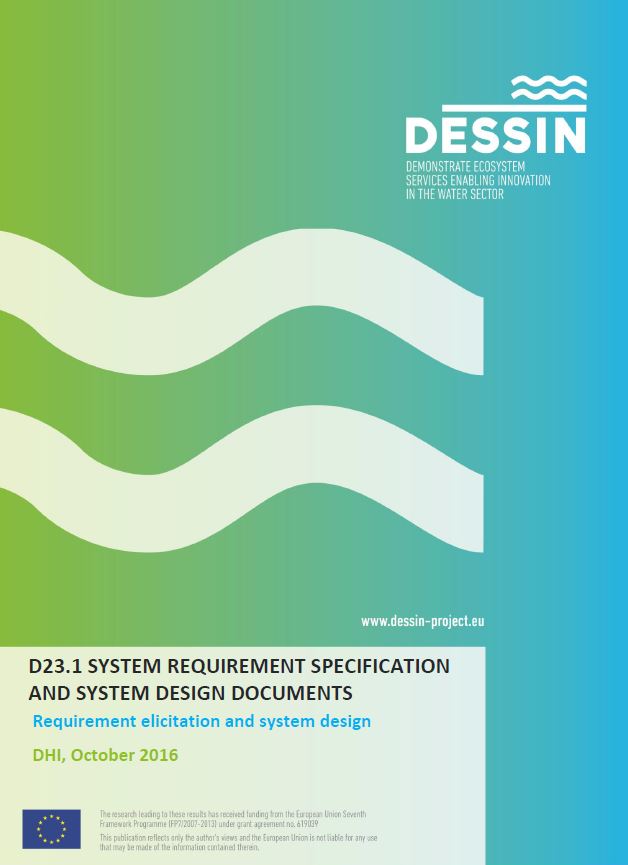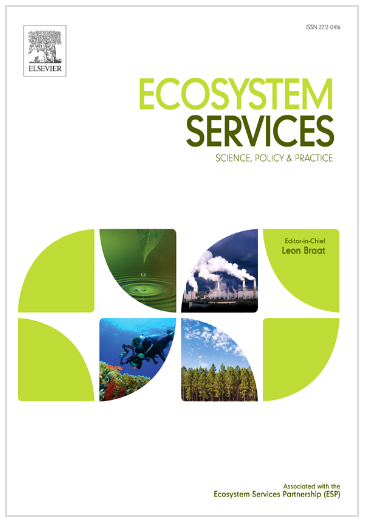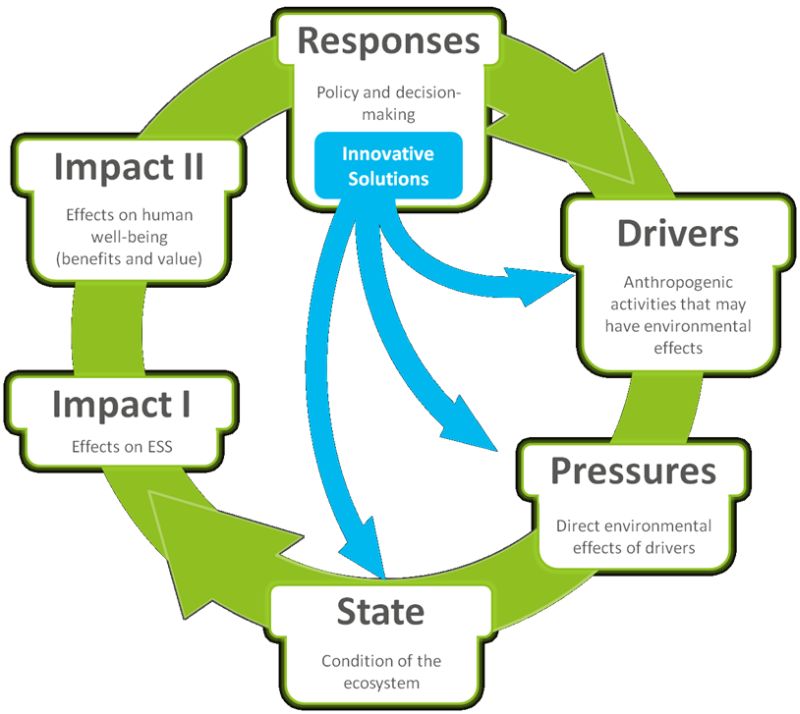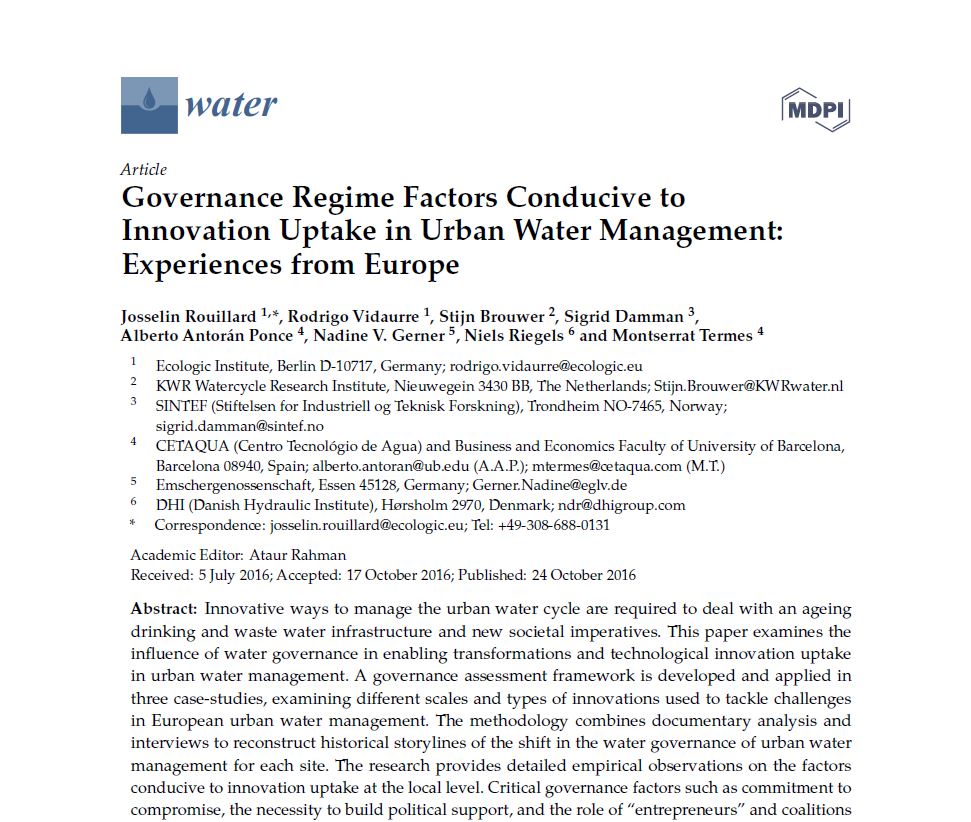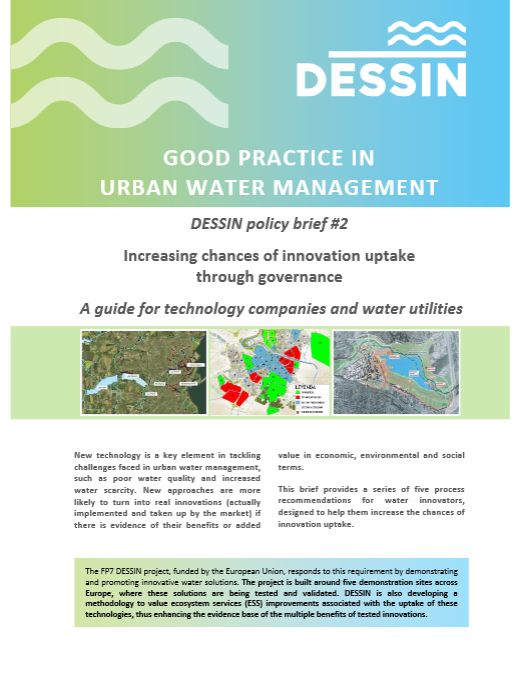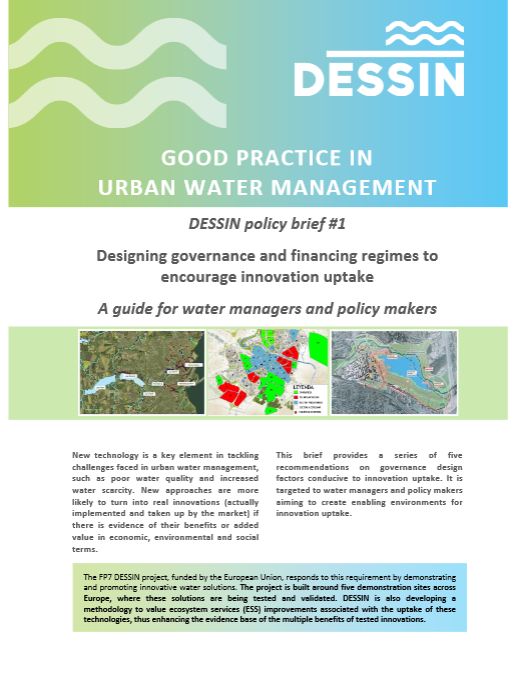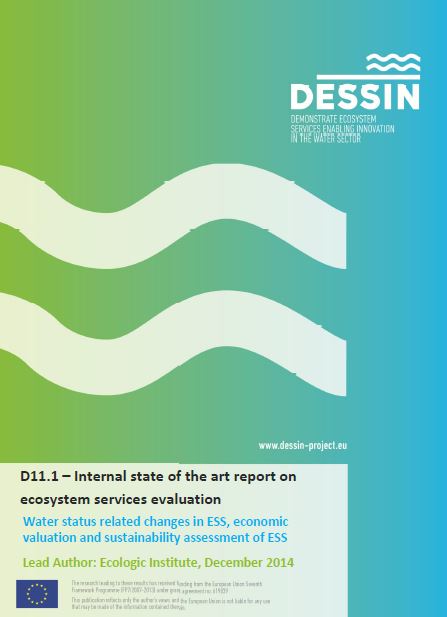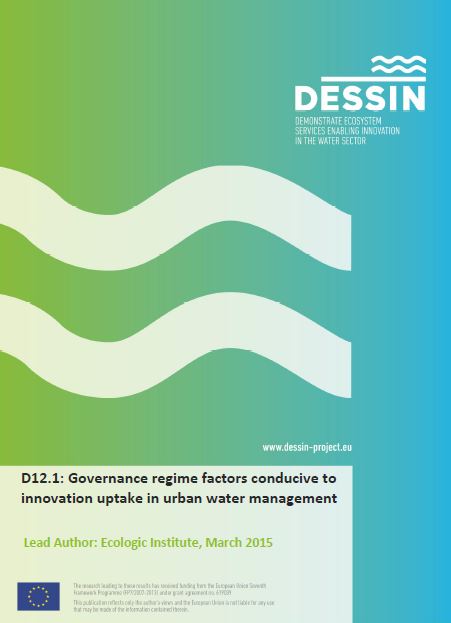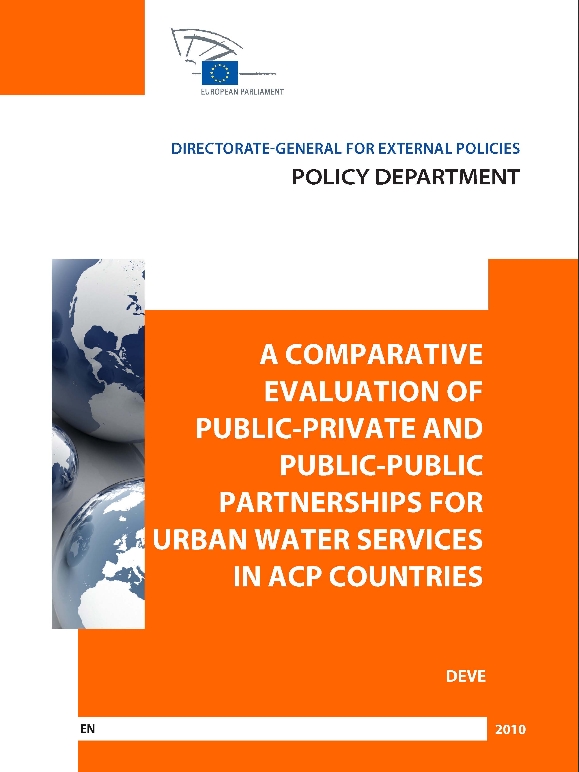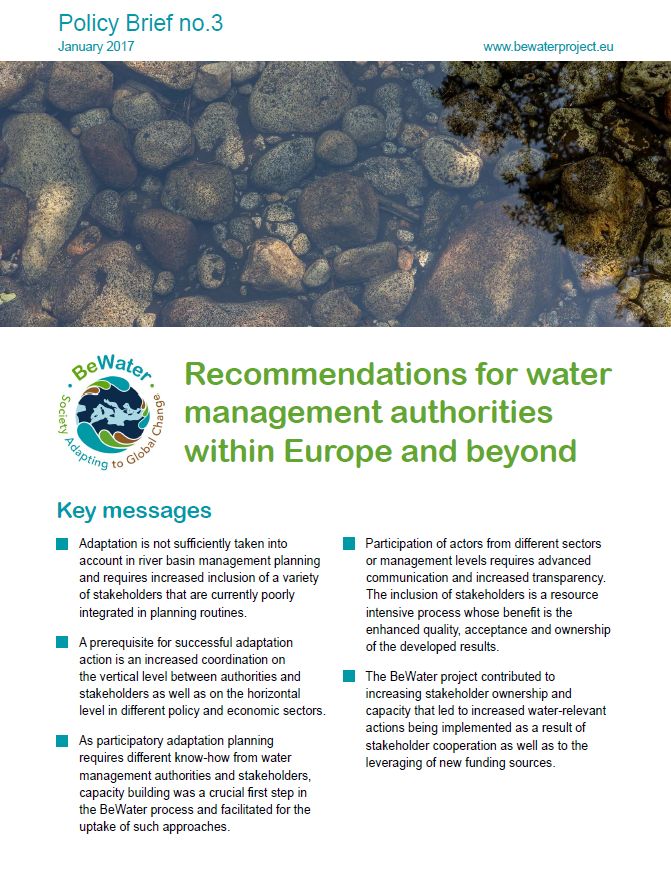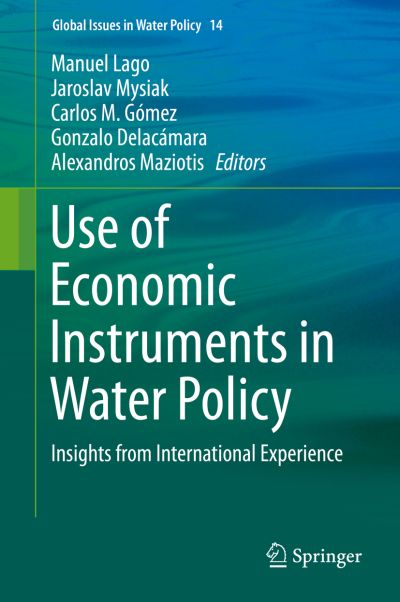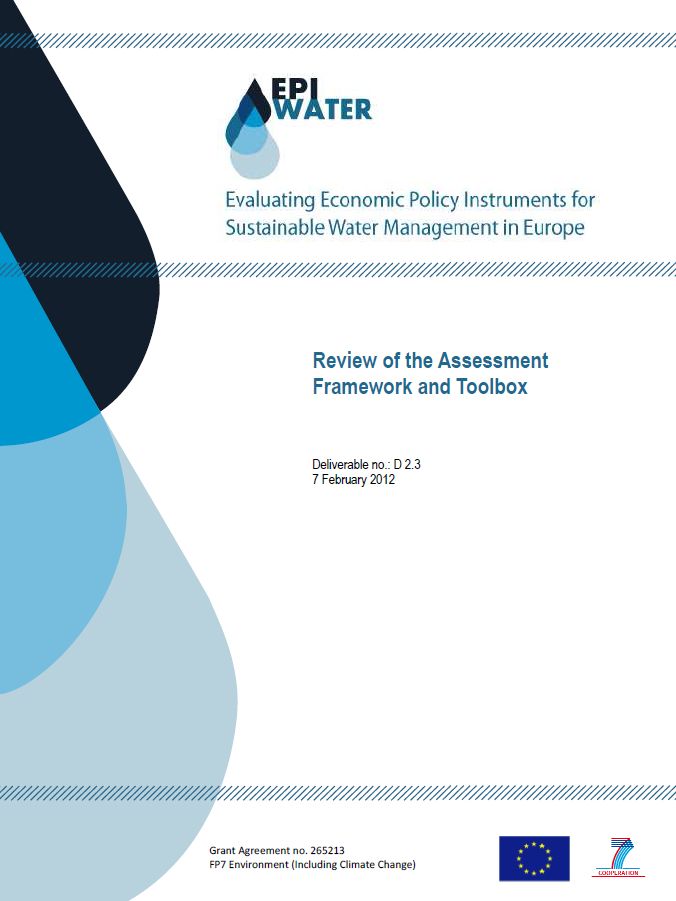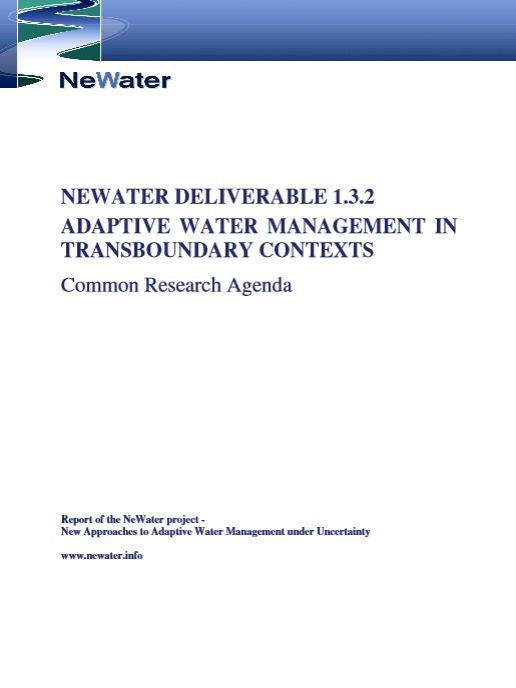System Requirement Specification and System Design Documents
Requirement elicitation and system design (Deliverable 23.1, DESSIN)
- Publication
- Citation
Riegels, Niels et.al. 2016: System Requirement Specification and System Design Documents. Requirement elicitation and system design. Deliverable 23.1, DESSIN, European Union's Seventh Framework Programme for Research and Innovation Grant Agreement No. 619039.
The overall goal of the DESSIN ESS software system is to support users implementing the DESSIN ESS evaluation framework and sustainability assessment. This document describes how the software should do this, from the end-user perspective. The document is organized into so-called "user stories". Each user story describes a task that a user would like the software to perform, and explains why performing the task provides value to the user. The users stories are organized into "epics", which are groups of similar stories. Most of the user stories are written from the perspective of an evaluation lead carrying out an ESS assessment, as this was thought to be the most likely user of the system. The software framework presented here was developed by DHI, ECOLOGIC, SINTEF, and IWW in collaboration with the DESSIN user group, which consists of the demo site representatives who will be the end users of the software.
Contact
- Language
-
English
- Authorship
-
Niels Riegels (DHI)Anders Klinting (DHI)Rita Ugarelli (SINTEF)Kristina Wencki (IWW)
- Funding
-
European Commission, Directorate-General Research & Innovation (DG Research & Innovation), International - Year
- Dimension
- 63 pp.
- Project
- Project ID
- Table of contents
-
Click to show full table of contents
TABLE OF CONTENTS
LIST OF FIGURES
LIST OF TABLES
LIST OF ACRONYMS AND ABBREVIATIONS
EXECUTIVE SUMMARY
1 INTRODUCTION
1.1 Purpose
1.2 User stories
1.3 Organization of the software system
1.3.1 Overall goal
1.3.2 Epics
1.3.3 User stories
1.4 Potential users of the software
1.5 Prioritization of user stories
2 EPIC 1: STUDY DESCRIPTION
2.1 Epic 1: User stories
2.2 Epic 1: Storyboard
3 EPIC 2: PROBLEM CHARACTERIZATION
3.1 Epic 2: User stories
3.2 Epic 2: Storyboard
4 EPIC 3: DESCRIPTION OF RESPONSES AND IDENTIFICATION OF POTENTIAL BENEFICIARIES
4.1 Epic 3: User stories
4.2 Epic 3: Storyboard
5 EPIC 4: DESCRIPTION OF RESPONSES AND IDENTIFICATION OF POTENTIAL BENEFICIARIES
5.1 Epic 4: User stories
5.2 Epic 4: Storyboard
6 EPIC 5: SUSTAINABILITY ASSESSMENT
6.1 Epic 5: User stories
6.2 Epic 5: Storyboard - Keywords
-
transition, cities, sustainability, adaptation, water governanceEuropeUser stories, software system, epics, user stories, storyboard
Rouillard, Josselin; Vidaurre, Rodrigo; Brouwer, Stijn; Damman, Sigrid; Ponce, Alberto A.; Gerner, Nadine V.; Riegels, Niels; Termes, Montserrat. 2016. "Governance Regime Factors Conducive to Innovation Uptake in Urban Water Management: Experiences from Europe." Water 8, no. 10: 477.
Tucker, Josephine; Roger Calow; Darla Nickel and Thomas Thaler 2010: A Comparative Evaluation of Public-Private and Public-Public Partnerships for Urban Water Services in ACP Countries. European Parliament, Brussels.
Lukat, Evelyn et. al. 2017: Recommendations for Water Management Authorities within Europe and Beyond. [BeWater policy brief no.3].
Lago, Manuel et. al. 2015: Defining and Assessing Economic Policy Instruments for Sustainable Water Management. In: Lago, M., Mysiak, J., Gómez, C.M., Delacámara, G., Maziotis, A. (Eds.): Use of Economic Instruments in Water Policy. Insights from International Experience. Heidelberg: Springer International Publishing.
EEA (2014): "Public participation: contributing to better water management". EEA Report, Vol. 3, 64.
Zetland, David; Hans-Peter Weikard; Gonzalo Delacamra et al. 2012: Evaluating Economic Policy Instruments for Sustainable Water Management in Europe: Review of the Assessment Framework and Toolbox. Ecologic Institute.
Kraemer, R. Andreas; Zulma Guzmán Castro; Ronaldo Seroa da Motta and Clifford Russell 2003: Economic Instruments for Water Management: Experiences from Europe and Implications for Latin America and the Caribbean. Berlin: Ecologic.
Kranz, Nicole et al. 2005: NeWater deliverable 1.3.2 Adaptive Water Management in Transboundary contexts. Common Research Agenda. Ecologic, RBA, RIZA, Berlin.
